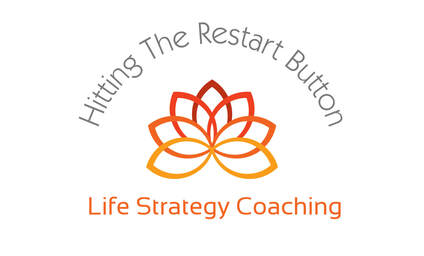|
Whenever there is a major life change, negative emotions come with it. These can include uncertainty, stress, anxiety, helplessness and fear...just to name a few.
Divorce Can Set Off Our Stress Response In the case of divorce, an individual's well-being is not only impacted significantly in an emotional way, but it will have lasting effects on their physical existence. When so much is turned upside down, it's no wonder fear is set off. What Happens Biologically When You Are Afraid? “Fear is our survival response,” says Northwestern Medicine Clinical Psychologist Zachary Sikora, PsyD. What's more, "although fear is experienced in your mind, it triggers a strong physical reaction in your body." This is not a case of mind over matter. "Fear reaction starts in the brain and spreads through the body to make adjustments for the best defense, or flight reaction," according to Arash Javanbakht and Linda Saab. First, the amygdala (small organ in the middle of your brain) is stimulated and alerts your nervous system, which sets your body’s fear response into motion. Next, stress hormones like cortisol and adrenaline are released. Then, your blood pressure and heart rate increase. The results include breathing faster, changes in blood flow begin whereby blood actually flows away from your heart and into your limbs, preparing for fight-or-flight. Almost everything about the divorce process can be sensed as danger, thereby setting off this biological response. How Does Fear Affect Rational Thinking? According to Louise Delagran, MA, MEd of the University of Minnesota, "Fear can interrupt processes in our brains that allow us to regulate emotions, read non-verbal cues and other information presented to us, reflect before acting, and act ethically." She goes on to say, "this impacts our thinking and decision-making in negative ways, leaving us susceptible to intense emotions and impulsive reactions." If you have gone through divorce or are in the business of working with divorcing individuals, you can attest to what I lovingly refer to as "losing IQ points." It's not that they are not smart, reasonable and even educated, but that fear is most prevalent and causing physical reactions that impact the cognitive functions. What Is Fear's Affect on Decision Making? To put it in simple terms, especially in light of divorce, fear causes a sort of rational shut down and a sort of regression as a result of three overarching reactions. 1. Self Focused Whenever we are in the fight or flight mode, which is activated when we sense danger, "we get very self-focused because we are in “protection mode,"" according to Missouri Partners in Prevention. This is our way of keeping ourselves safe. As a result, it is very difficult to be focused on anything else outside our own survival. This is one of the reasons that people going through divorce are unable to understand a different point of view or seem unreasonable, as they are hyper-focused on themselves. 2. Sense of Lack When we experience fear, our perception shifts to a sense of lack or scarcity. It feels as if there is not "enough" which sparks the belief that it is necessary to fight for what we need. In the case of divorce, this "not enough" view can make it difficult to see the bigger picture and often the true reality. 3. Wants Become Needs In a rational, calm state, discriminating between wants and needs is easy. However, feeling afraid can blur the lines between the two because our fear reaction activates the part of our brain that dominated our thinking in childhood. This is the reason that so many individuals going through divorce act and react in a very immature manner, even to the point of throwing "tantrums" uncharacteristic of their otherwise normal behavior. How Do You Work With The Fear? First and foremost, it is important for those professionals working with divorcing individuals to understand the biological reactions that are happening with their clients. In this way, there is a greater possibility of "reaching" or getting through to your client with the facts to make decisions that are in their best interest and to facilitate a quick and non-contentious divorce. If you yourself are going through divorce, you can comfort yourself with the fact that your fears are real to you and that with some slowing down and quiet reflection, you can turn that fear into empowered, well thought out decisions and action steps for ensuring the best possible post-divorce life. Define The Fears Releasing fear is first about recognizing what the underlying reason(s) for feeling afraid. This is why a therapist or divorce coach is so imperative because as an objective support system, they can gently guide individuals to consciously identify exactly what is setting off the fear. Defining fears leads to demystifying them and opens a path out of fight or flight mode. In this way, it becomes possible to think more clearly and make better decisions. Feel The Pain Once the fears have been identified, an individual will often feel some pain, specifically as it relates to the loss of the marriage, the family unit, the life they know and so much more. However, it can be quite healing and free up lots of psychic energy, which allows for better identification of the new challenges that come with divorce and creating action steps to constructing a new life. -Elisa
0 Comments
Leave a Reply. |
ELISA
|
|
Elisa Valentino
HOLISTIC BEHAVIORAL PRACTITIONER DIVORCE & LIFE TRANSITION COACH SPIRITUAL LIGHTWORKER PUBLIC SPEAKER PODCAST HOST |
©2024 Hitting The Restart Button



 RSS Feed
RSS Feed
